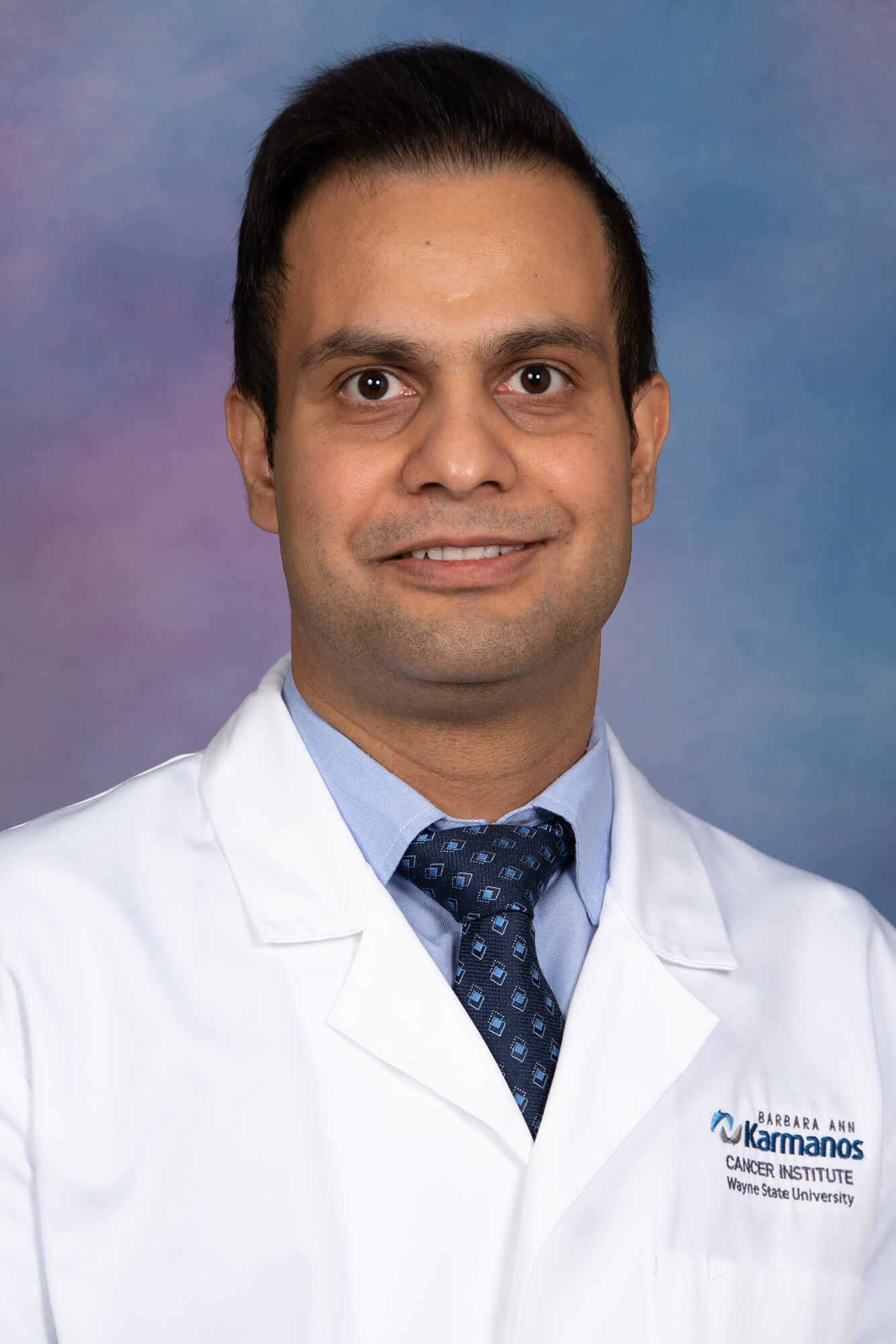An editorial argues that patients with resectable non-small cell lung cancer (NSCLC) who achieve a complete pathological response (pCR) after neoadjuvant chemoimmunotherapy should still receive adjuvant immunotherapy to increase their chances of long-term survival. Dipesh Uprety, M.D., medical oncologist, member of the Thoracic Oncology and Phase I Clinical Trials Multidisciplinary Teams, and member of the Molecular Therapeutics Research Program at the Barbara Ann Karmanos Cancer Institute, was the lead author on “Adjuvant Immunotherapy Should Be Used in Patients With Non-Small Cell Carcinoma With a Pathologic Complete Response to Neoadjuvant Immunotherapy,” which published in the Journal of Thoracic Oncology. The paper was published in the Controversy in Thoracic Oncology section in the January 2025 issue.
Dr. Uprety and his co-authors from the Mayo Clinic and Lausanne University Hospital, presented several points to back-up their argument including, “recognition that achieving pCR does not necessarily equate to a cure and it is logical to promptly initiate the immunotherapy that was effective in the neoadjuvant setting to enhance the chances of a cure as there are a significant number of patients who achieve pCR that still experience disease recurrence,” Dr. Uprety stated.

Evolving Treatment Strategies for NSCLC
Historically, patients with resectable NSCLC were treated with surgery followed by adjuvant chemotherapy. Neoadjuvant chemotherapy was not widely used due to concerns about its effectiveness compared to post-surgical treatment, with the potential for disease progression by delaying definitive surgery. However, recent clinical trials have demonstrated that combining chemotherapy with immunotherapy in the neoadjuvant setting significantly improves survival rates and leads to higher rates of pCR.
"However, the lack of mature data has sparked debate on whether patients who achieve a pathologic complete response should receive adjuvant immunotherapy after surgery,” explained Dr. Uprety.
Why Adjuvant Immunotherapy Matters
Analysis of recent research underscores that even in cases where pCR is achieved, microscopic disease may persist undetected, leading to potential relapse. Data from landmark trials, including CheckMate 77T and KEYNOTE-671, show that patients receiving adjuvant immunotherapy after neoadjuvant treatment and surgery significantly reduces the risk of recurrence and improves the five-year overall survival rate. Furthermore, the comparison between perioperative and neoadjuvant-only strategies has demonstrated a nearly 40% reduction in disease recurrence or death compared to neoadjuvant treatment alone.
Future Implications
This editorial provides compelling evidence for the continued use of immunotherapy in NSCLC patients who achieve a strong response to neoadjuvant treatment. Further research is needed to identify the specific patient populations that will derive the greatest benefit from this approach. According to Dr. Uprety, authors hope that more mature data regarding pCR patients will provide further insight into this topic.
Read the editorial here.